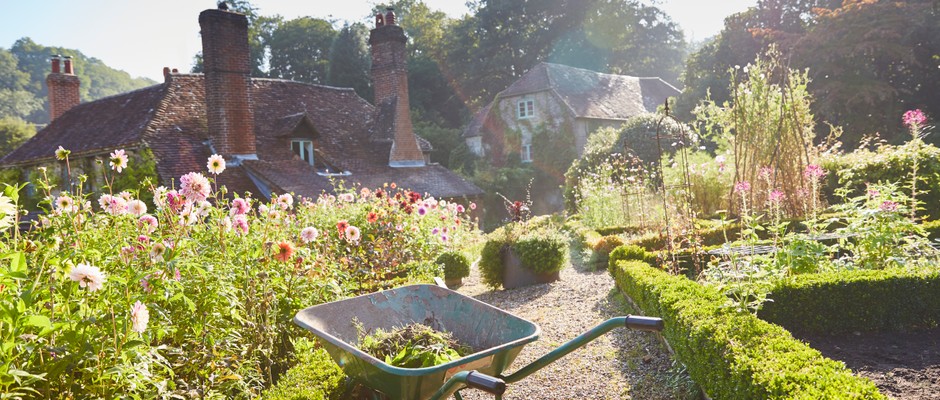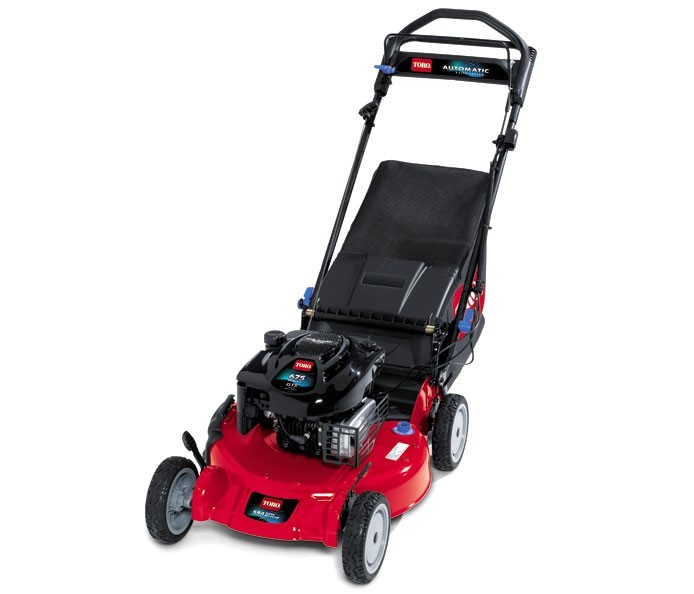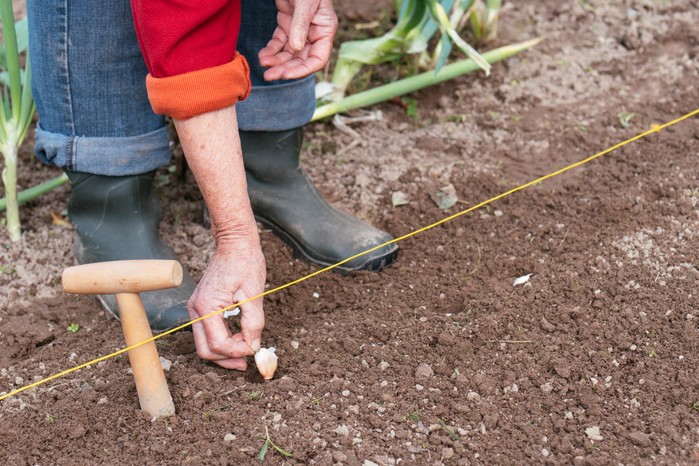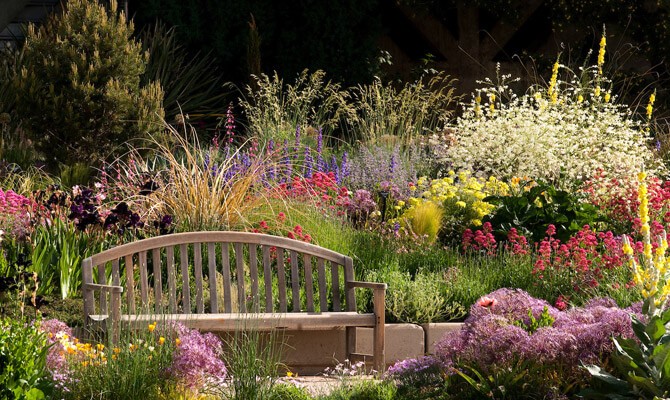
How to employ a gardener
A skilled gardener offers far more than mere watering and weeding but what, exactly, should you look for when you're thinking about hiring a gardener look after your garden regularly?
A skilled gardener offers far more than mere watering and weeding but what, exactly, should you look for? Annie Gatti picks up on some of the main considerations when looking to employ a gardener.

What work needs doing?
Gardeners, and the services they offer, are many and varied, and if you’re thinking of employing one your first step should be to decide what kind of work you need doing. A hard-working and reliable gardener can do the jobs you can’t/don’t want to do/don’t have time to do, freeing you up to enjoy your garden more. An unskilled or novice gardener, who will be the cheapest to employ, should be able to do jobs such as mowing the lawn, raking up leaves or digging over beds under your supervision. Gardeners with experience should cope with all the tasks needed to keep a garden under control – including weeding, grass cutting, strimming, pruning, planting, mulching, feeding, spraying, deadheading and lawn care – and know when to do them. A top- notch gardener will be able to help you plan your garden, suggest and source plants and even mentor you, if you want to learn more. You shouldn’t expect a gardener to do the jobs that a landscaper would do, such as lay a patio, build a wall or put up a garden building.

Where do I find a gardener near me?
Personal recommendation seems to be one of the best ways of finding a good gardener. If you don’t know anyone living near you who employs one, look for ads on noticeboards in local shops or garden centres orin free sheets. You could also get up to three quotes from local gardeners by putting your requirements on ratedpeople.com (a website of recommended tradesmen). Qualified gardeners are listed on thegardenersguild.co.uk.
If you need a tree surgeon choose an Arboricultural Association-approved arborist (listed at trees.org.uk) who will be fully trained and insured. Be wary of leaflets offering cut-price gardening services – the operators may have no experience and you could end up paying much more to remedy the mess they’ve left you with.
Individual or company?
Using an established company should give you peace of mind as they will have a track record that you can easily check online. On the downside they may well charge more per hour. With a self-employed gardener, the most important thing is to find someone you can trust who will do the job well. Various websites stress the importance of qualifications, such as the RHS Level 2 Certificate in Practical Horticulture, but as one gardener observed to me, having a qualification doesn’t make you a good gardener. Other qualities to look for are fitness, taking care with the tools and being reliable.

Be aware of legal requirements
Whichever route you choose, ask for references. Even a novice gardener should be able to provide you with the phone number of someone they have worked for. If you decide to take on someone who hasn’t been in business long, try them out on a small job first, so that you can see the quality of their work. Expect the gardener to bring their own tools – if they use yours, and work regularly for you at a pre-arranged time and day it may become an employer/employee relationship rather than the gardener providing you with a service, and you may have to take on responsibilities of an employer. You could also be liable for any injuries they receive while using your tools. It’s sensible to check if they have Public Liability Insurance, which covers against damage by them to you or your property. Also, if you’re expecting them to use a chainsaw or pesticides, or to take away your green waste (many gardeners prefer not to), you should definitely check if they hold the relevant certificates and licences.
How often do you need gardeners and when do you pay them?
Many garden owners have relaxed arrangements with their gardeners, and are happy to be flexible about which days they come, especially if the weather is bad. But when starting out with a new gardener, either on a regular basis or as a one-off job, it’s sensible to establish exactly what you expect them to do. If you need them regularly then agree with them how often they will come. Depending on the size of garden, you might need them once a week, fortnightly or even once a month during the growing season. Also important is agreeing with them how and when they will be paid. You also need to agree payments for goods they might buy for the garden, such as plants, seeds, feeds. Some gardeners ask to be paid for their work in cash, others accept cheques or electronic payments and it’s usual to pay either at the end of a week or monthly. Although most gardeners expect and like to work on their own, it can be helpful for both the owner and the gardener if they meet up at least once in the day – often it’s over a cup of coffee – to talk through the jobs in hand and what needs to be done. With an experienced gardener, an owner can learn a lot by working alongside them.
How much does a gardener cost?
Rates vary according to the experience of the gardener, what you’re asking them to do, and whether they are solo operators or belong to a maintenance company. If you’re paying by the hour, expect to pay from £10 upwards, with charges of £15-£35 for gardeners with horticultural qualifications and/or experience, and £25-£35 for garden maintenance companies. London rates will be highest. Some gardeners have a fixed price for regular tasks such as lawn mowing and hedge cutting (you can compare prices at local.which.co.uk). Ask for a quote for specialist jobs such as tree work (make sure the surgeon is qualified and insured). Hourly rates are usual for general work but you will be charged extra for waste removal and use of pesticides. Jobs involving power tools might be more expensive too.
More like this
THREE CASE STUDIES
1. Seasonal help
Problem Fiona Mitchell needs help three or four times a year getting her garden under control.
Solution “My gardener does the heavy jobs, which in spring involves sorting out the two compost heaps, mulching the beds and pruning the larger trees and shrubs. This year he also dug over a herb bed, took out a huge shrub and cleared a broken hazel fence. I do the weeding though.” This all takes about four hours, and Fiona pays by the hour.
Cost The hourly rate is £12.50. Fiona books him two weeks in advance.
2. Regular maintenance
Problem Mr and Mrs Soloman have a medium-sized garden in north London, including a formal lawn, which they like to keep beautifully tended.
Solution They use the London company The Botanical Gardener for lawn care, pond maintenance and the seasonal tasks, such as weeding, pruning etc. “We come weekly for four hours, and leave everything spotless,” says gardener Chris Warren.
Cost For this garden, the rate is £21 per hour plus VAT.
3. Restoring a bed
Problem Rosemary Sexton normally takes care of her garden herself, but she was out of action following an operation and needed an experienced gardener to tackle her 2m x 6m border that had become congested. It also needed a good mulching.
Solution “The gardener sorted through the bed, lifting the perennials, and restored the whole thing to order. I had complete confidence in what he was doing,” says Rosemary.
Cost Rosemary paid £15 per hour for a day’s work. “Money well spent,” she says.
Please note hourly rates vary and this is only a guide.

Niwaki bundle worth £57 when you subscribe
Subscribe to Gardens Illustrated magazine and claim your Niwaki bundle worth £57
*UK only

Container Gardening Special Edition
The Gardens Illustrated Guide to Container Gardening.
In this special edition, discover colourful flower combinations and seasonal planting schemes for pots designed by leading plantspeople, and essential know-how for container gardening success. Just £9.99 inc UK p&pBy entering your details, you are agreeing to our terms and conditions and privacy policy. You can unsubscribe at any time.

Gardens of the Globe
From botanical wonders in Australia to tranquil havens closer to home in Ireland, let this guide help you to discover some of the most glorious gardens around the world
By entering your details, you are agreeing to our terms and conditions and privacy policy. You can unsubscribe at any time.




